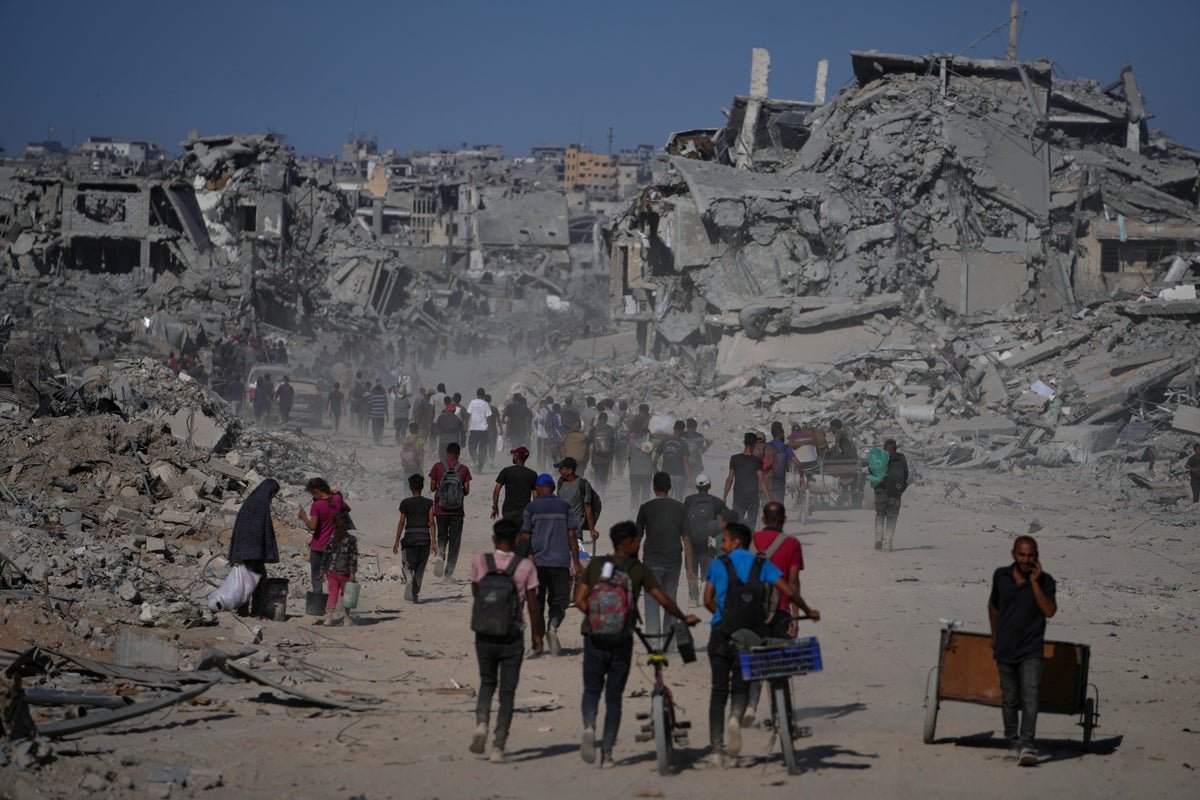Hamas has deployed bulldozers in the Gaza Strip to search for the remains of deceased hostages, a move aimed at bolstering its fragile ceasefire agreement with Israel. The militant group reaffirmed its commitment to the terms of the agreement, including handing over bodies.
This action comes after a sharp warning from US President Donald Trump, who stated that he would give Israel the green light to resume military action if Hamas failed to return all 28 hostage bodies. So far, Hamas has delivered the remains of nine people, plus a tenth body Israel claimed was not a hostage.
Hamas blamed Israel for the delay, saying some hostages are in tunnels or buildings destroyed by Israeli forces, requiring heavy machinery to retrieve them. The group also claimed that Israel has not allowed new bulldozers into the Gaza Strip, hindering the effort.
Much of Gaza’s heavy equipment was destroyed during the recent conflict, leaving limited resources to clear the extensive rubble across the region.
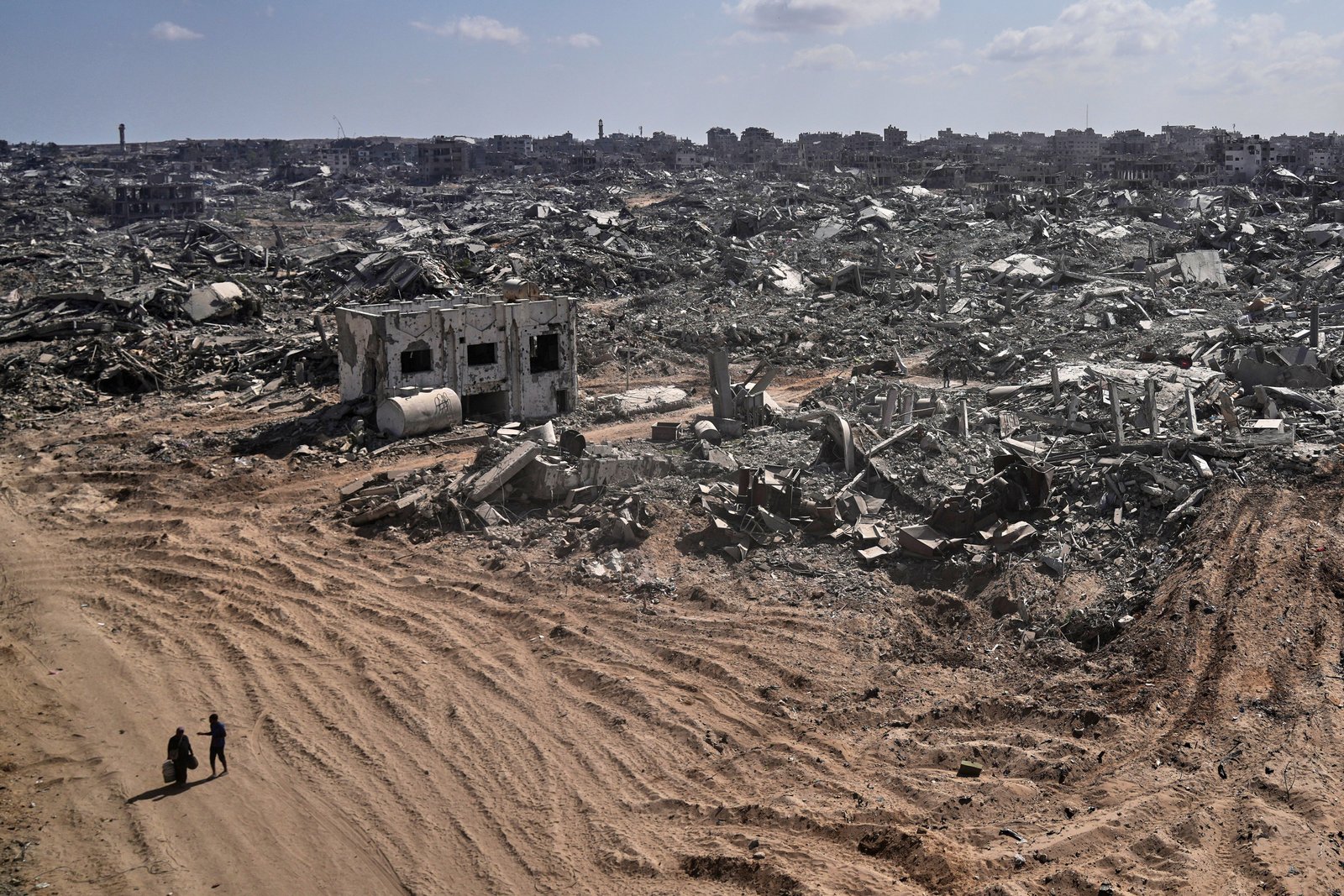
On Friday, two bulldozers plowed holes in the ground as Hamas searched for hostages’ remains in Hamad City, a complex of apartment towers in the town of Khan Younis. Israeli forces repeatedly bombarded the towers during the war, toppling some, and troops carried out a week-long raid there in March 2024, battling militants.
Hamas called on mediators to increase the flow of aid to Gaza, speed up the opening of the Rafah border crossing to Egypt and start reconstruction. It also called for work to “begin immediately” to establish a committee of Palestinian independents to lead the Gaza Strip and for Israeli troops to continue withdrawing from agreed areas.
The cease-fire plan introduced by Trump had called for all hostages – living and dead – to be handed over by a deadline that expired on Monday. But according to the agreement, if that did not happen, Hamas was to share information about deceased hostages and try to hand them over as soon as possible.
Israeli Prime Minister Benjamin Netanyahu has said that Israel “will not compromise” and demanded that Hamas meet the demands of the cease-fire agreement to return the bodies of hostages.
Obstacles to retrieving bodies
Through intermediaries, Hamas has assured the US that it is working to return dead hostages. U.S. officials say the recovery of the bodies is hampered by the extent of the destruction, combined with the presence of dangerous, unexploded ordnance.
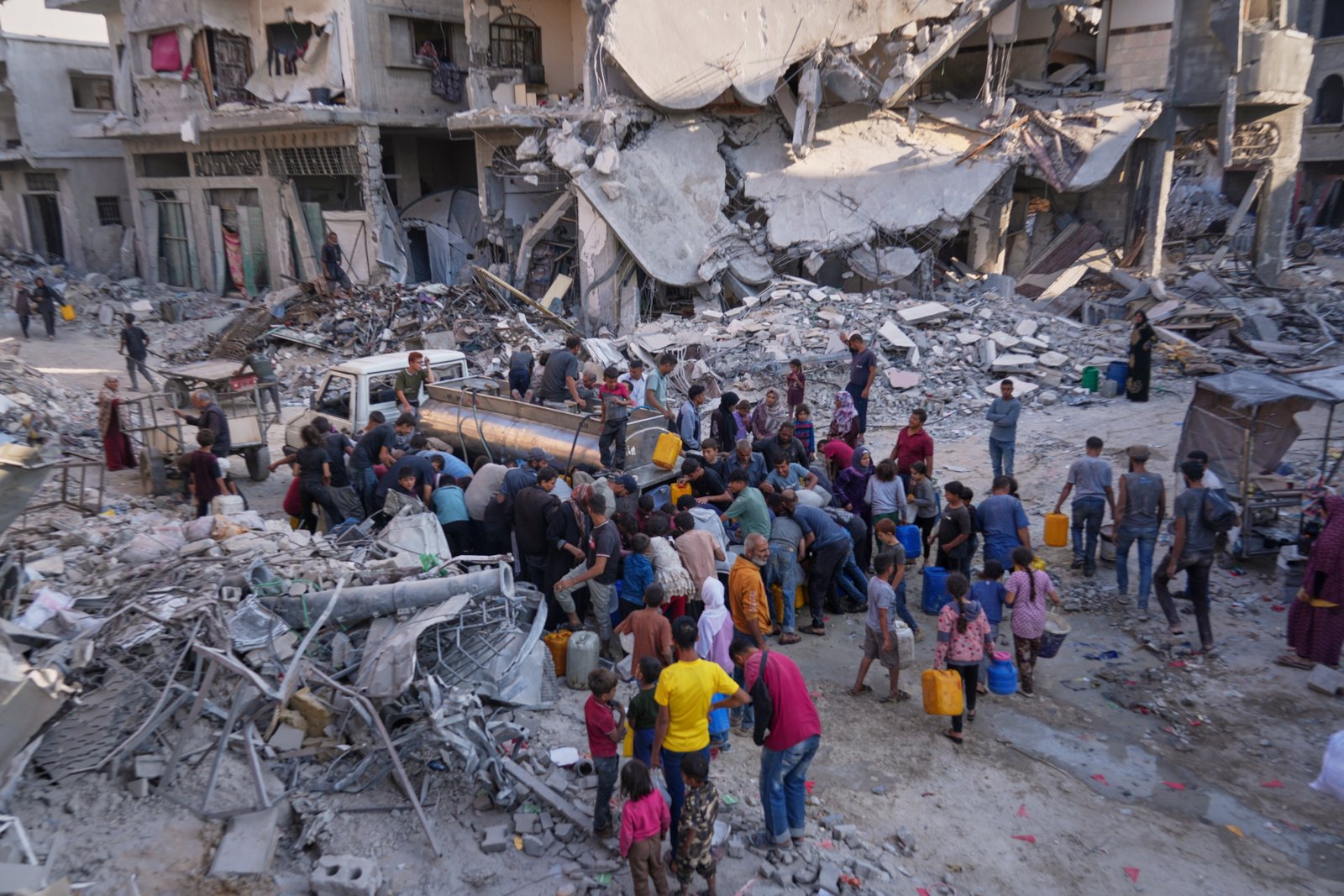
The militant group has also told mediators that some bodies are in areas controlled by Israeli troops.
At a press conference with his German counterpart in Ankara, Turkish Foreign Minister Hakan Fidan expressed concern that Israel could use Hamas’s “lack of equipment” to recover bodies as a pretext to resume hostilities.
Hamas released all 20 Israeli hostages alive on Monday. In return, Israel freed about 2,000 Palestinian prisoners and detainees.
In Israel, the Hostage and Missing Families Forum – which groups together many families of hostages – said it will continue to hold weekly rallies until all remains are returned.
Israel has also returned the bodies of 90 Palestinians to Gaza for burial. Israel is expected to hand over more bodies, although officials have not said how many are in its custody or how many will be returned.
A Palestinian forensic team examining the remains said some of the bodies showed signs of abuse.
Israel’s campaign in Gaza has killed nearly 68,000 Palestinians, according to the health ministry, which is part of the Hamas-run government in the area. The ministry maintains detailed casualty records that are considered generally reliable by UN agencies and independent experts. Several thousand people are missing, according to the Red Cross.
In the attack on Israel on October 7, 2023, militants killed about 1,200 people and took about 250 hostages.
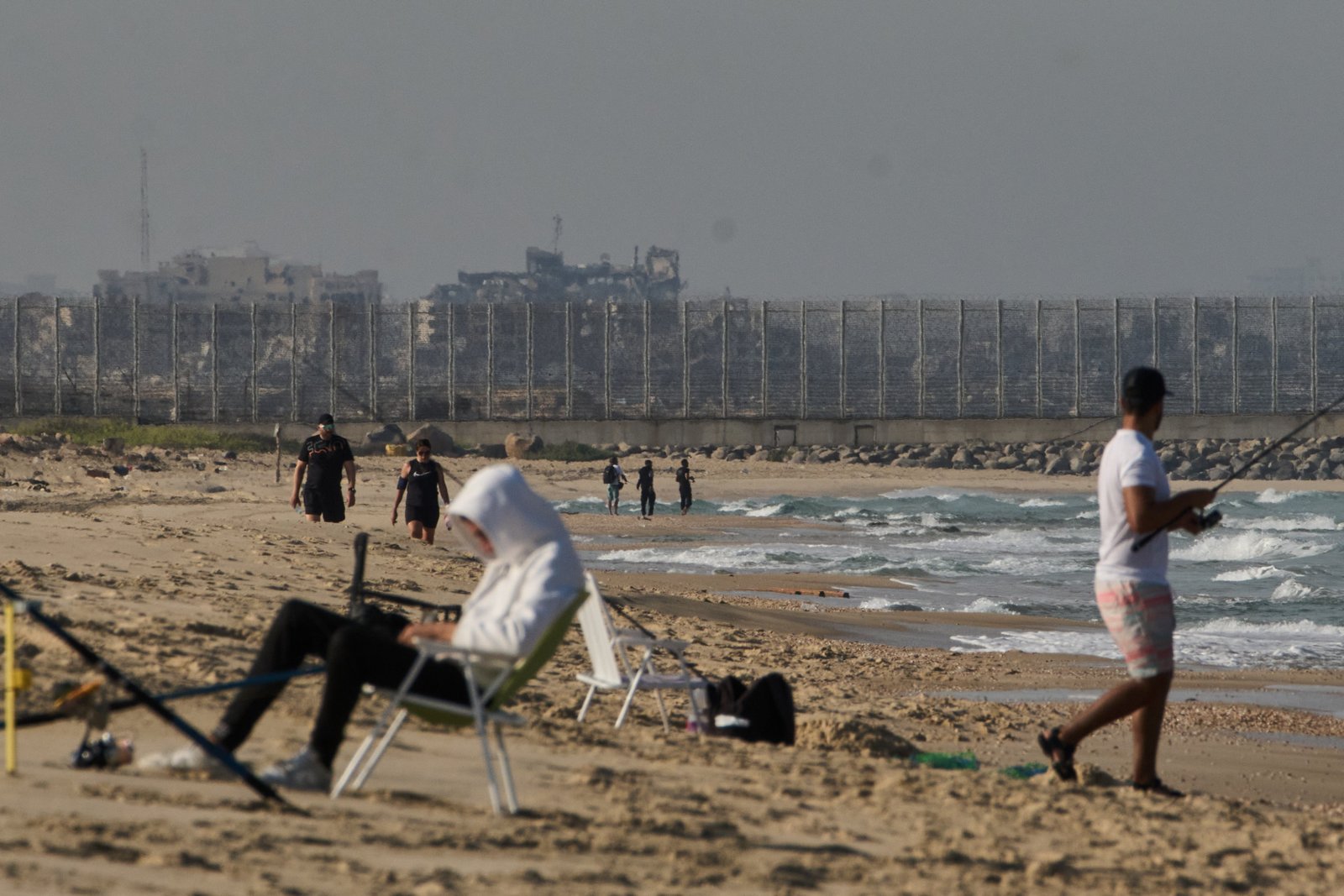
France says international force to Gaza is on its way
France said it was working with Britain and the United States to propose a UN resolution in the coming days that would frame the international force for Gaza.
French Foreign Ministry spokesman Pascal Confavreux told a press conference on Thursday that Arab countries want a UN mandate for the force. Arab countries are expected to be among those contributing troops to the force, which will oversee Egyptian-trained Palestinian police.
Confavreux said details of funding, equipment and which countries will participate still need to be worked out.
Referring to the possible stabilization force, Turkey’s Fidan said “our goal is to create an environment with a buffer zone where each side can no longer harm the other.”
The wait for a major influx of aid to Gaza continues
The UN says the flow of aid remains limited due to continued closures of crossings and restrictions on aid groups.
The UN dashboard, which tracks the movement of UN-coordinated aid trucks into Gaza, shows that 339 trucks have been unloaded for distribution since the ceasefire began on 10 October. Under the ceasefire agreement, 600 aid trucks would be allowed to enter Gaza daily.
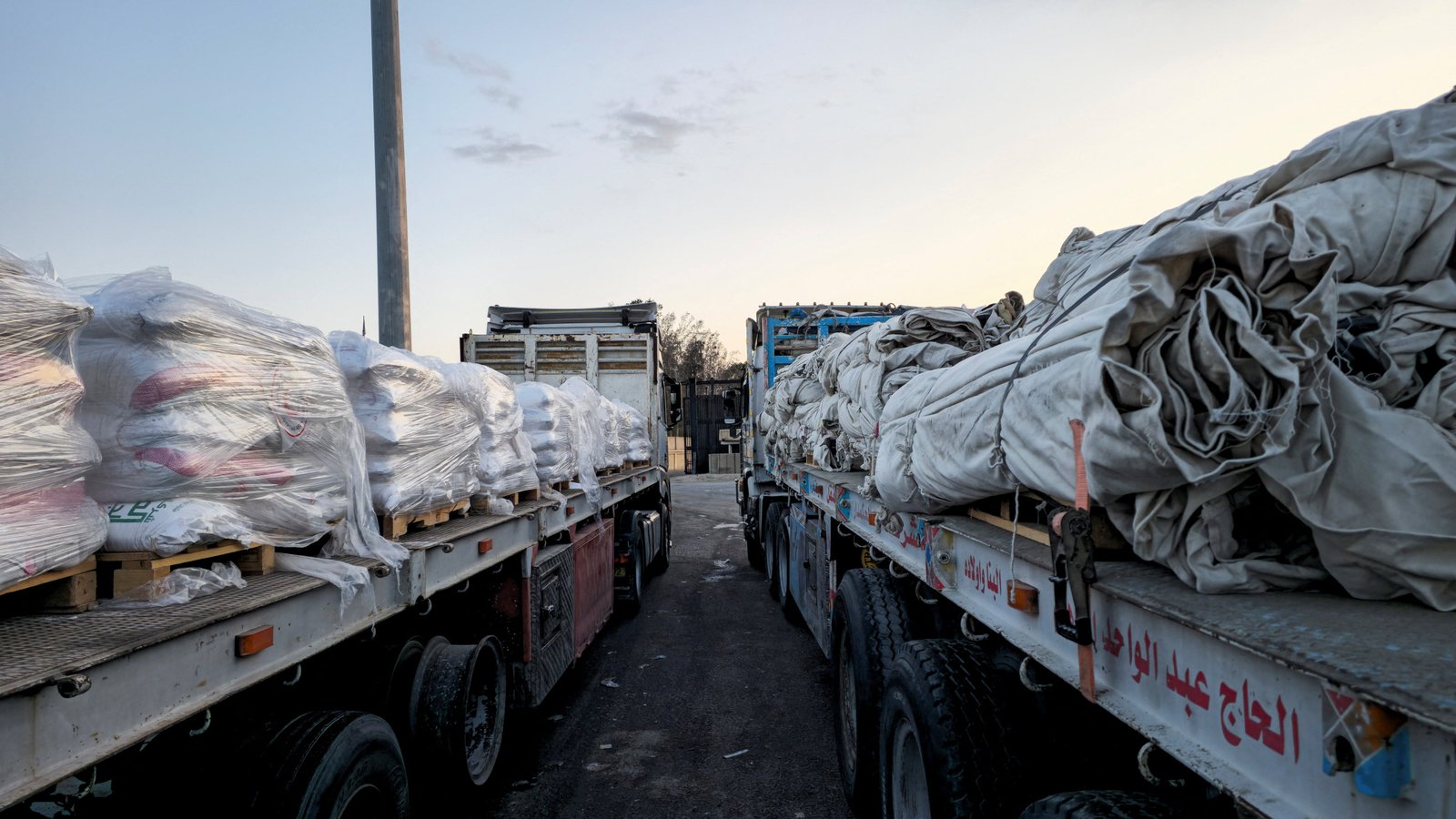
COGAT, the Israeli defense agency that oversees humanitarian aid in Gaza, reported that 950 trucks crossed on Thursday and 716 on Wednesday, said Jens Laerke, a spokesman for the UN Agency for the Coordination of Humanitarian Aid. Crossings were closed Monday and Tuesday for the exchange of hostages and prisoners and for a Jewish holiday.
Laerke said COGAT’s figures include commercial trucks and bilateral deliveries.
Nahed Sheheiber, the head of Gaza’s private truckers’ union, which organizes the pickup of entry aid after Israeli inspection, says improved security in Gaza has helped prevent looting or gangs intercepting aid convoys – although there has been no significant increase in supplies arriving since the ceasefire. He said only 70 trucks were running on Thursday.
Gaza’s more than 2 million people hope the ceasefire will bring relief from the humanitarian disaster caused by Israel’s campaign. Throughout the war, Israel restricted aid access to Gaza, sometimes only allowing it to flow in, and it completely blocked food from entering for two months earlier this year to pressure Hamas to release hostages.
Famine was declared in Gaza City, and the UN says it has verified more than 400 people died of malnutrition-related causes, including more than 100 children.
Israel says it let in enough food and accuses Hamas of stealing much of it. The UN and other aid organizations reject the claim.
